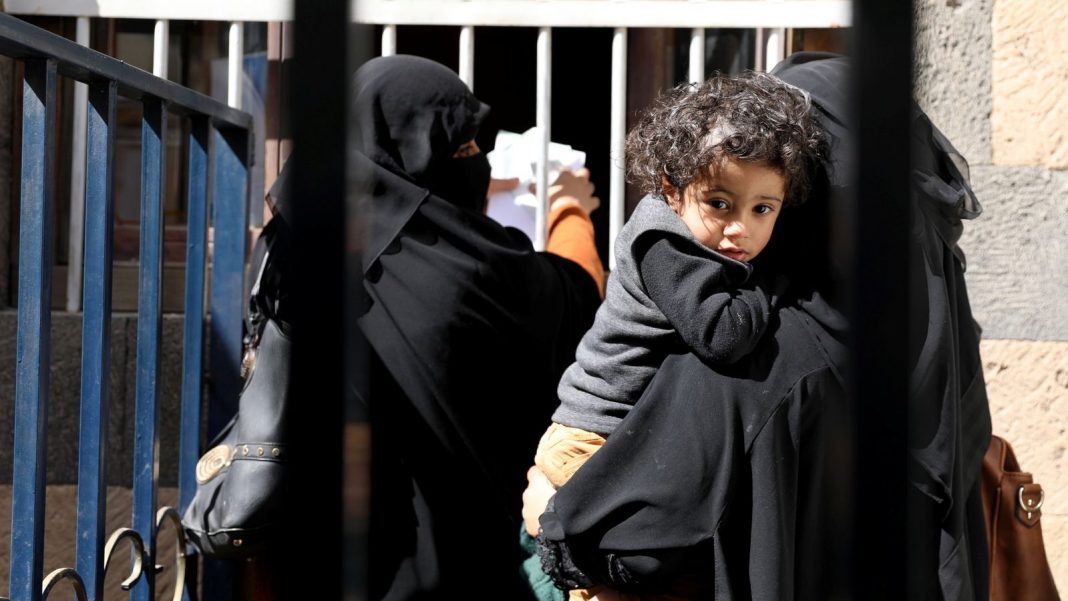Hundreds of thousands more women will face unsafe abortions and thousands will die in pregnancy and childbirth as a result of cuts to the UK’s overseas budget, ministers have been warned.
An internal assessment of the funding crunch by civil servants reveals the impact of this year’s cuts, which the Foreign Office says has been reduced in the short term to achieve a savings target, but will nearly double next year.
A 76% cut in aid to Afghanistan will potentially leave some of the most vulnerable women and girls in the world without critical services, according to the internal report.
On Yemen, it said half a million women and children will not receive healthcare and fewer preventable deaths will be avoided.
Girls’ education in Ethiopia will also be compromised and violence against women and girls in South Sudan and Somalia will not receive adequate attention and response, the report said.
The cuts follow the government’s decision to decrease overseas development aid spending from 0.7% of Gross National Income (GNI) to 0.5%.
Labour MP and chair of the International Development Committee, Sarah Champion, told Sky News: “The whole report is chilling.”
She said the cuts would “hit the poorest, the most marginalised – particularly women and girls – and those with disabilities”.
Please use Chrome browser for a more accessible video player
6:25
Fears over Afghan girls’ education
Critical support to tackle malnutrition will not be delivered in South Sudan, she said, which the report says could lead to the deaths of 3,000 children.
Cuts to aid women’s sexual health in Africa could mean hundreds of thousands of more unsafe abortions happening, she said, adding preventable deaths for women and girls, particularly maternal fatalities, could increase.
“The list just goes on and on,” said Ms Champion. “This is the reality. Political decisions have to be made, but this is the impact that it has on the ground.”
Ms Champion continued: “I do understand the argument. I hear it a lot, around ‘why are we sending this money abroad?’
“One of the reasons that the money that we can send abroad is cut is because unlike any other G7 country, our government has chosen to spend foreign aid here in the UK to support refugees coming across in small boats, those that have come from Afghanistan and Ukraine.
“My argument is, it’s a better, more long-term investment to make sure that people can stay in their homes… because people don’t want to flee their homes.”
She said the cuts would mean “already desperate countries in desperate situations having more pressure put on them, and the reality is that’s going to spill across borders”.
Asked if there was a direct correlation in cuts in international aid and an increase in the number of people trying to come to the UK illegally, Ms Champion replied: “Absolutely.”
She said: “Whether legally or illegally, if you are forced to flee your home, no one chooses to leave their home. They may do it for probably the least pernicious economic reasons, but even so, people want to stay within their communities, within their family units. You might go to the next village but you are not going to risk your life unless you absolutely have to.”
Please use Chrome browser for a more accessible video player

2:56
The students exploiting the UK visa system
Read more:
Inside Yemen: The forgotten war
Nearly 80 schoolgirls poisoned in Afghanistan
In a letter to the committee, Foreign Office minister Andrew Mitchell said the report had been “a key component of allocation decision-making”, and insisted support would reach “the most vulnerable”.
An accompanying document said “using in-year underspends and other resources identified by officials” adjustments had been made to find more money to spend on aid this year including an extra £41m for Afghanistan, £32m for Yemen, £30m for Syria and £30m for Somalia.
A Foreign Office spokesman said: “UK aid spending is due to increase to £8.3bn next year, and will be focused on programmes addressing humanitarian crises, protecting women and girls and supporting the world’s most vulnerable, while delivering value for money for taxpayers.
“While the budget for low-income countries has had to be reduced in the short term to achieve our savings target it is due to nearly double for these countries the year after, including in Africa where aid will rise from £646m to £1.364bn.”







